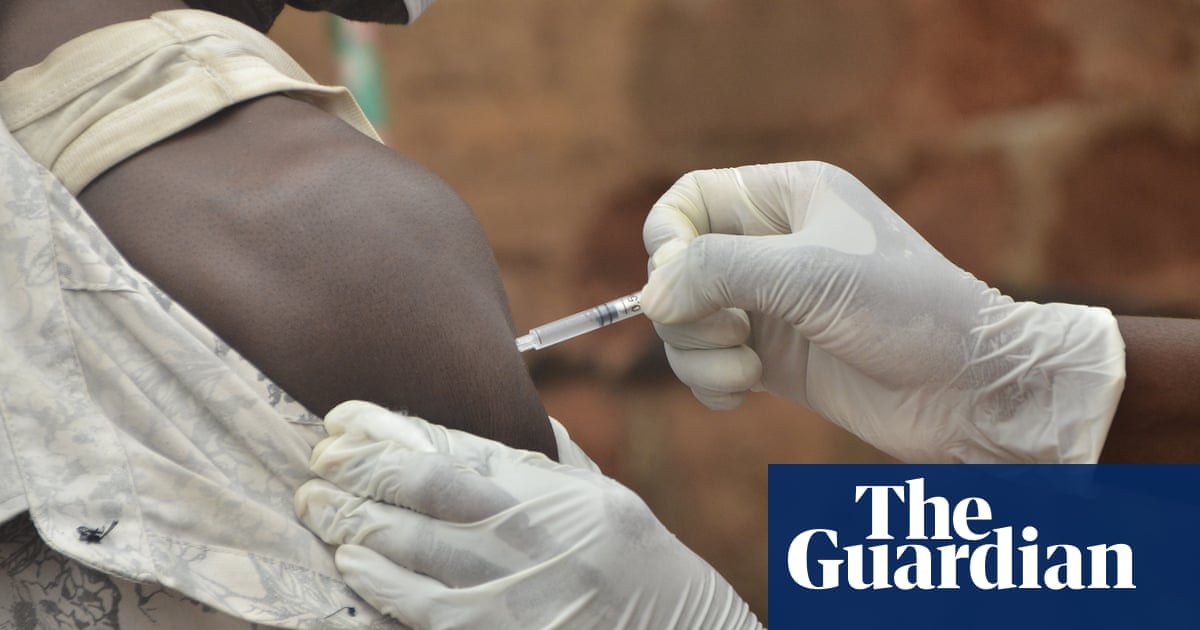
With the Trump administration scaling back support for the US Agency for International Development (USAid) and withdrawing from global public health funding, there are increasing concerns that mpox—previously referred to as monkeypox—risks escalating into a broader international crisis, as highlighted by humanitarian workers and health specialists.
Stephen Morse, a Columbia University epidemiology professor specializing in infectious disease risk assessment, remarked, “It’s a critical error to not take all necessary actions to manage this outbreak while there’s still an opportunity.” He warned, “Reversing course significantly will only exacerbate the situation.”
Last August, the World Health Organization (WHO) declared mpox a public health emergency of international concern due to rising cases in the Democratic Republic of Congo (DRC), which began spreading to neighboring African nations. USAid has been instrumental in addressing the virus through vaccination, testing, and surveillance initiatives. Last year, USAid and the Centers for Disease Control and Prevention (CDC) allocated $55 million in emergency assistance for response efforts.
However, USAid personnel have reported that a portion of these funds remains unallocated and is currently frozen due to the administration’s directive to halt nearly all humanitarian aid.
Furthermore, USAid staff were evacuated from the DRC in late January, as indicated by court documents. Until recently, the United States remained a pivotal player in the coordination of response efforts.
One anonymous USAid worker expressed concern during planning meetings, stating, “The immediate focus is on what USAid will do, and right now, everyone is in a state of uncertainty.”
The suspension of aid has left several provinces that rely solely on USAid funding without any means to manage the virus effectively, the employee noted.
“We were on track to establish a sustainable system capable of addressing not only the current mpox outbreak but also future outbreaks. Now, we are uncertain about its viability,” remarked another USAid worker familiar with the mpox efforts.
“Given the rising cases of Ebola and Marburg in neighboring countries, it’s a matter of when, not if, the next occurrence in the DRC will arise, and how the nation will be prepared,” they added.
Experts warned that cutting resources for the current outbreak increases the likelihood of mpox spreading to additional countries.
“Closing down USAid can only be described as disastrous. This isn’t solely about the impact on people abroad; there’s a real risk of mpox or another pandemic affecting the United States,” stated a researcher specializing in infectious diseases, who requested anonymity due to ongoing collaborations with the National Institutes of Health and the CDC.
The 2022 global mpox outbreak resulted in over 100,000 cases across 122 nations and marked the first instance of the virus spreading beyond central and western Africa. Fortunately, that outbreak has largely been contained, thanks in part to widespread vaccination campaigns.
The recent outbreak in the DRC represents a different variant of the mpox virus that caused the 2022 cases.
US Secretary of State Marco Rubio has indicated that essential humanitarian relief—covering food and medical supplies—might still proceed via a waiver, despite the funding freeze. However, USAid personnel have stated that, while efforts to obtain a waiver for ongoing mpox programs in the DRC have been made, none have been approved yet.
Trump administration officials argue that their goal is to curtail wasteful expenditures and fraud, but public health researchers have criticized the abruptness and severity of the funding cuts.
“Should such cuts occur, they must be approached thoughtfully,” commented Amesh Adalja, a professor at the Johns Hopkins Bloomberg School of Public Health.
“Unpredictability is counterproductive when managing a disease control program.”
after newsletter promotion
Numerous organizations depend heavily on USAid funding. According to Adalja, “When funding is withdrawn, decision-making regarding vaccine distribution, testing strategies, and program allocations often lacks expert guidance, complicating control efforts.”
Although many of the agency’s programs are currently halted, the future of USAid remains contentious in legal challenges. Recently, a federal judge ruled that the aid freeze must be temporarily lifted, thus granting the government five days to comply. Aid workers have mentioned that this ruling has created uncertainty about how to restart programs, which may just be terminated again.
While USAid staff members express their primary concern for continuing the agency’s aid initiatives, recent weeks have also taken a toll on their well-being, as revealed in court testimonies.
Three USAid workers shared the turmoil they experienced during their evacuation from the DRC on January 28, prompted by a federal lawsuit filed by union representatives of federal employees. Following protests in Kinshasa, the embassy ordered evacuations, but with foreign aid halted, offices in Washington closed, and many colleagues placed on administrative leave, communication was scarce, and workers were left to handle their own evacuations.
Workers recounted the experience of being crammed into boats with their families, each person allowed just a carry-on bag or a backpack—many had to leave pets and most of their possessions behind. Now, back in Washington, their professional futures remain uncertain.
“The stress, anxiety, and sleepless nights stemming from concerns about staff, partners, and the overall situation in the DRC have taken a toll on my health,” said a USAid employee who chose to remain anonymous and identified themselves as Nancy Doe in testimony dated February 11.
Morse emphasizes that the US withdrawing from the WHO alongside the curtailing of USAid operations creates a “double jeopardy.” The United States has historically been the largest contributor to the WHO and has benefited significantly from its research collaborations that will now be inaccessible.
“Blindfolding ourselves and binding our hands won’t enhance our safety,” Morse concluded. “Instead, we will become less aware of the threats to our health and safety.”









